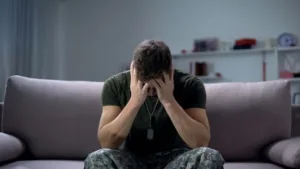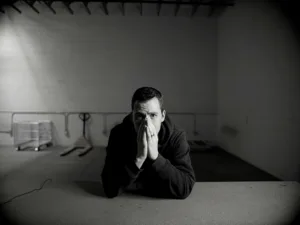Men have been in the news and under the microscope recently. And for good reason.
In general, men are in trouble. Men seem to be the ones engaging in mass shootings and sexual misconduct. Men are also falling behind in educational attainment. And, male suicides are much higher than females. There may be many factors that account for this. Today we will explore trauma and male gender role stress.
Male gender role stress is an often neglected and overlooked factor in post-traumatic symptoms in men.
We hear very little about men and trauma in the mainstream press. The research tells us that males are less likely to report trauma. When they do they often under-report the effects it has had on them. However, the fact is that men experience trauma which can result in harmful symptoms. There are some factors that increase these symptoms and deeply affect their emotional well being.
What is Gender Role Stress and why is it important?
Male gender role stress is the experience of emotional distress as a result of violating or not adhering to traditional masculine gender role norms. Traditional masculine gender roles can increase the severity of Post Traumatic Stress Disorder.
What is PTSD?
Post-traumatic stress disorder is a mental health problem that people develop after experiencing a traumatic event. This event can be scary, shocking and even life-threatening. However, the same event can be traumatic for a person and doesn’t have to be for others. Our background, life-experiences, personality and our mental and emotional balance in that particular moment influence how we perceive and store that event.
In order to be diagnosed with PTSD the person should have the following symptoms for at least one month:
- a minimum of one re-experiencing symptom (frightening thoughts, flashbacks, bad dreams)
- minimum of one avoidance symptom (avoiding to think about the traumatic event, avoiding the place of the traumatic event, avoidance of emotions, people or objects that are related to the traumatic experience)
- a minimum of two cognition and mood symptoms (loss of interest in activities that they used to enjoy
- negative thoughts about himself or the world around them, guilt, blame, trouble remembering important details of the traumatic event or remembering the traumatic event in great detail), a minimum of two arousal and reactivity symptoms (having anger outbursts, being easily upset, feeling tense constantly, having difficulty sleeping, having diet issues that they didn’t experience before).
After experiencing a traumatic event, in order to reduce the risk of PTSD, it’s important to try to find the appropriate way to process the trauma, look for support, seek coping strategies, find a support group, and find the appropriate therapist for your needs.
A great tool that can help you reprocess traumatic events is EMDR therapy. Practice guidelines and studies have shown that trauma-focused psychotherapies have the most evidence for treating PTSD.
The link between Male Gender Role Stress and PTSD.
Various researchers are studying the link between male gender role stress and PTSD. It’s important to identify each factor that increases the risk of PTSD in order to be able to work on each of them.
While it’s important to reprocess the traumatic event in order to overcome it fully, it’s also helpful to look at ways to work on each of those factors in order to decrease the severity of the symptoms.
The main links between male gender role stress in PTSD are the following:
- Men with gender role stress often do not engage in help seeking behaviors because they might view this as weakness. In addition, it’s common for men to hide their emotions so they might not be able to seek appropriate help and talk about their feelings and manage to reprocess their trauma properly. For this reasons men with gender role stress will avoid seeking treatment for their PTSD
- They usually use unhealthy coping strategies, such as alcohol abuse so they can avoid dealing with difficult feelings such as anger, grief, sadness.
- Since the image of strong, fearless men is so deeply accepted by so many people, men might not even accept the fact that they are dealing with a traumatic memory or difficult emotions. Men can be more easily in denial while dealing with trauma because they are not able to accept their vulnerability.
For these reasons, men who experience male gender role stress are at higher risk for developing PTSD and in some cases the severity of their PTSD.
Here at Denver Men’s Therapy, we are dedicated to treating male trauma. It is our mission and life’s work to reduce the stigma of men’s mental health so that guys can get the effective treatment that men deserve. Often our unique approach involves addressing gender role stress before trauma treatment can take place.
Gender Role Stress and PTSD: There is Hope!
One very effective treatment for trauma is EMDR therapy. Over the years of using EMDR therapy with men, we have found time and time again that it is the perfect match for guys. One reason is that EMDR therapy does not require a lot of talking. EMDR therapy also provides a framework and tools so that men feel ready and prepared for the difficult work ahead.














